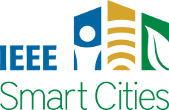Foreword: Empowering Energy Citizens and Energy Communities for Smart Cities, Part 1
Written by Shafi Khadem, Guest Editor
While empowering citizens by turning them from passive to energy active consumers, implementing smart appliances in smart buildings, introducing energy trading/sharing with neighbours, developing new local energy market mechanisms and creating energy communities, the development of integrated technologies/energy systems are some of the most important areas in the formation of smart cities, the innovative smart energy solutions and integrations at the community level can be replicated at the city level. This special issue of the IEEE Smart Cities eNewsletter focuses on the innovations that are being approached by the stakeholders, developing and demonstrating to empower the energy citizens and forming smart energy communities towards the development of decarbonized smart grids and cities. This month, four articles have been presented that address different challenges within the area of peer-to-peer energy trading, advanced measurement and monitoring systems, data analytics, implementation of blockchain technology, multi-vector energy trading, and SCADA system.
The first article of this special issue was written by Fatuma Ali, Juan Pablo Cárdenas Álvarez, Ana Trbovich, Andrea Bertolini, Juan Manuel España, Santigo Ortega and is entitled “Advancing from Community to Peer-to-Peer Energy Trading in the Medellín-Colombia Local Energy Market Trial”. The authors have introduced peer-to-peer energy trading to the Medellin pilot project which previously operated through community trading with differentiated net billing. It's an interesting case study and is based on real-life implementation.
The second article, entitled “Deriving Value for Citizens, Communities and Utilities from AMI data” was written by Elizabeth Massey, Sarah Valovcin from the USA. The authors address the important role of a flexible platform for future analytics that can accept data inputs from any source regardless of vendor, and use advanced analytics to determine how a smaller public power utility can benefit from this type of work.
The third article, “Blockchain Technology Based Multi-Vector Energy Trading in Smart-Neighbourhoods”, was written by Chandra Prakash Barala, Aaquib Firdous, Sumanth Yamujala, Parul Mathuria, and Rohit Bhakar, from Malaviya National Institute of Technology Jaipur, India. In this article, the authors provide an overview of blockchain technology based multi-vector energy trading in smart-neighbourhoods to promote local energy balance.
The fourth article is entitled “Optimal WAMS Configuration Study for the Egyptian Grid,” written by Hady H. Fayek and Omar H. Abdalla from Egypt. In smart cities, the consumer can be a part of both energy production and consumption systems, and hence the authors address the importance of Wide Area Measurement Systems (WAMS) in the smart grids in smart cities.
As leading editor of this special issue, I would like to extend special thanks to the authors, the IEEE Smart Cities Publications Committee, and all IEEE staff for their ever-tireless support.
This article was edited by Loi Lei Lai
To view all articles in this issue, please go to January 2022 eNewsletter. For a downloadable copy, please visit the IEEE Smart Cities Resource Center.

To have the eNewsletter delivered monthly to your inbox, join the IEEE Smart Cities Community.
Past Issues
To view archived articles, and issues, which deliver rich insight into the forces shaping the future of the smart cities. Older eNewsletter can be found here. To download full issues, visit the publications section of the IEEE Smart Cities Resource Center.



